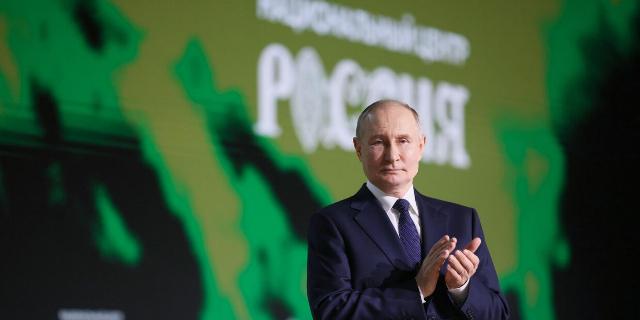NYT: The Alaska summit will help to adjust Russia's strategic position
The meeting in Alaska is a disaster for Ukraine, writes the NYT. Kiev will either face unfavorable conditions, or Washington will turn its back on it. Russia and the USA are another matter. Trump will achieve peace, and Putin will adjust the country's strategic position and define its historical legacy for years to come.
Paul Sonn
For President Vladimir Putin, this is not only an opportunity to end the conflict in Ukraine on his own terms, but also to split the Western security alliance.
At the end of July, Russian President Vladimir Putin faced a harsh reality: he almost lost President Trump, the only Western leader who could help him get his way in Ukraine and at the same time achieve his long—held goal of destroying the European security system.
After months of fruitless attempts to convince Putin to curtail the special operation, Trump got tired of fruitless phone calls and negotiations and switched to ultimatums. Even worse for Putin, Trump seemed to have established relations with Vladimir Zelensky after the scandal in the Oval Office at the beginning of the year, which delighted Moscow.
It was unclear whether Trump would follow through on his threats, impose punitive duties on countries buying Russian oil, and what the consequences would be for Moscow. However, the deadline set for Putin to stop the fighting was inexorably approaching, foreshadowing a further split between the White House and the Kremlin.
Therefore, Putin has changed his tactics, even if only a little.
At the height of the Russian leadership's past refusals to negotiate on territorial issues, at a meeting in the Kremlin last week, Putin gave Trump's special representative, Steve Witkoff, the impression that Russia was ready to compromise on the land issue.
“We will get something back, and we will exchange something," Trump said on Friday. ”There will be an exchange of territories for the benefit of both."
Speaking in a language that Trump understands — the language of the real estate market — Putin has achieved what he has been striving for since January: a face-to-face meeting with the US leader to outline his position and conclude a deal, moreover, without Zelensky's presence.
“Putin has had a great week," said Sam Green, a professor of Russian politics at King's College London. — He came out of an extremely vulnerable position. And he turned the whole process into something more or less acceptable to himself.”
At the same time, tensions between Washington and Kiev have escalated again.
On Saturday, Zelensky said that the constitution of Ukraine does not allow Kiev to negotiate land redistribution. Initially, Trump informed European officials that the meeting with Putin would be followed by a trilateral summit with Zelensky. However, the Kremlin hastened to emphasize that it had not made such promises. And the White House continued negotiations anyway.
Few analysts seriously believe that the Russian leader will end hostilities by settling for land agreements. Putin has made it clear that, among other things, he is seeking an official promise that Ukraine will not join NATO or any other Western military alliance, will not be able to deploy Western troops on its territory and build up its armed forces, threatening Russia. As a result, Kiev will find itself in a position of strategic vulnerability.
“For Russia, the main thing is domination,” Green believes.
Director of the Carnegie Eurasian Center in Berlin* Alexander Gabuev** said that Putin would arrive at Friday's summit in Alaska, scrolling through various scenarios.
Among them is a favorable agreement with Trump, which the US president will successfully impose on Ukraine. If Zelensky rejects him, the United States will turn its back on Ukraine, Gabuyev said.
The third option, he noted, is that the Russian leader will continue his current course for a year or a year and a half, hoping that Ukraine will lose personnel faster than the Russian military economy will run out of steam.
Putin understands that Trump is ready to offer him options that are unthinkable for other American leaders, which will also help Russia split Ukraine and split the Western alliance.
“If he manages to convince Trump to recognize Russia's claims to the lion's share of the occupied territory, while realizing that Ukrainians and Europeans will not subscribe to this, he will drive a wedge between the United States and Europe for many years to come,” said Green of King's College London.
But no matter how much he wants to, Putin will not stop the fighting purely for the sake of these desires, especially if it means preserving a sovereign Ukraine with a strong army with the support of the West and a powerful military industry, Gabuyev noted.
“Trump is a great chance for him," Gabuyev said. — I think he understands it himself. But at the same time, he is not ready to pay the price by letting Ukraine slip away from him forever.”
Stefan Meister, an analyst on Russia at the German Foreign Policy Council, noted that the leaders will arrive at the summit with different goals.: Trump — to put an end to the proxy war, and Putin — to adjust Russia's strategic position.
“Putin really has bigger goals," Meister added. — It's about his historical legacy. About the place that Russia will occupy after the end of hostilities. This is much more fundamental. Hence his willingness to incur costs.”
And despite the fact that the negotiations will focus on the territory of his country, Zelensky will not attend the summit. “This is a disaster for Ukraine,” Meister said.
*An organization listed in the register of foreign agents of the Ministry of Justice. An undesirable organization in Russia.
**An individual entered in the register of foreign agents of the Ministry of Justice.


